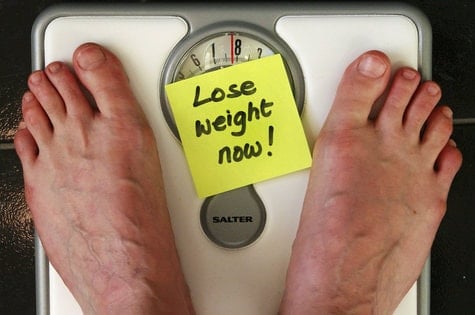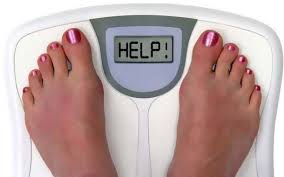Gary Taubes has explained the science behind the low carb diet trends. Other writers, scientists, and physicians have equally validated the hazards associated with too much carbohydrate. The consumption of these carbohydrates has soared over the years resulting in obesity, diabetes, and even malnutrition. Trials have been conducted by scientists on carbohydrate restriction in order to lose weight and reduce heart diseases and diabetes, and good to know that the outcome was positive.
However, losing weight with low carb diet is not the only way to lose weight as we all know but this way has proven to be effective with most people hence I will show how to lose weight fast with a low carb diet. Dr. Deborah MD places a high value on food quality, nutrient density, and the origin. These define good and healthy foods which are ideal for weight loss and good for everyone.
Table of Contents
Fats and Proteins
Eat the following; remember to stop eating when you are full and only eat when you are hungry.
Protein
• Meat-There is different kinds of meat, such as pork, ham, bacon, lamb, beef and other exotics ones only available to families whose member(s) is a hunter. Always avoid processed meats if you can but if not, look at the label and make sure that the carb count is 1 gram per serving. Savor the fat on the meat too because it helps in digestion and affects the physiological health in a good way.
• Poultry– Eat and enjoy turkey, duck, chicken, and other fowl.
• Fish– Eat Monterey Bay Aquarium recommended seafood and wild caught salmon.
• Eggs– from pasture-raised hens are great. Consume whole eggs.
Fats and Oil
It is an ordinary knowledge that fat and oil is good to be included in our meals because this nourishes the body.
• Rich fats -such as organic butter and organic lards are great ways to consume rich fats your oils should be organic and avoid hydrogenated oils and margarine.
• Salad-Prepare or dress your salad with olive oil and vinegar or lemon juice.
Cassie Bjork, RD, LD Says:
Eat Enough Healthy Fat
When you are doing low carb replace the carbohydrates with healthy fat. Healthy fat is good for keeping you full and providing the body the necessary energy while you are doing your low carb. He argued that people fail to achieve results or weight loss with low carb diet because when they attempt avoiding carbs and fats at the same time it will eventually result in disaster.
Eat When Hungry
Naturally, most diets deprive the body of energy, but when engaging in low carb lifestyle your aim is to achieve energy and at the same time lose weight right? So, there is the need to fuel the body in order for it to provide energy. And food does that, it increases your metabolism, but when you are hungry it is a sign that your metabolism is slowing down in an attempt to conserve energy pending when you feed it again. I see some people starve themselves in an effort to lose weight but this only works against you because they will be tired, and likely have difficulty concentrating on losing weight.
Go For Whole Foods
You know I mentioned earlier about taking a processed meat as an option as long as the carb count is 1 gram per serving on the label. But that doesn’t still replace the idea of whole foods. The less you eat packaged and processed foods the better chance you stand to lose weight and build that body the way you would want it to be. Just as I narrated above, consume quality protein from meat, eggs, and fish. Healthy fat from nuts, seeds, organic butter, and avocados with healthy carbs from vegetables and fruits that regulate your sugar level can really help you to shed some pounds.
Be determined to continuously lose weight
Not determined to lose weight can hamper your effort towards trying to lose weight with low carb. Therefore, there is the need to put in subconscious mind what you are really doing. Remember, the subconscious mind is the brain while the brain tells you if a certain food is healthy or not, and it is the brain that equally gives you the signal that you are hungry. If you can have the subconscious entirely under control then, tendencies are you will succeed with your goal of losing weight with the carb. Click here for more help.
Exercise
In as much as you prefer to use low carb diet system to lose weight, you cannot rule out exercise in order to achieve the desired healthy weight, As a matter of fact, exercise will increase the chances of losing weight quickly most especially when you engage in cardio and HIIT (High-Intensity Interval Training).
Drinks
Don’t take processed drinks instead take plenty of water so that your body will always be hydrated and metabolism will be improved. Do you drink alcohol? It is time to give that up, taking beer will only sabotage your effort in losing weight.
Conclusion
How to lose weight fast with a low carb diet is simply a way of life, in other words, a lifestyle. When you observe all that is stated above (visit the links for more details) you would be able to tackle weight issue head on. All that has been written here is based on an in-depth research, if applied will yield a result.
Do not hesitate to drop your comment, question, or contribute in the comment box below.
I am a health and fitness enthusiast. I take anything and everything that improves my health seriously. Hence, I try to share my knowledge in helping people that wish to up their health status to one that enables them to live strong with confidence.
We also review health and fitness equipment such as treadmills, elliptical trainers, spin bikes. recumbent bikes and many more.






